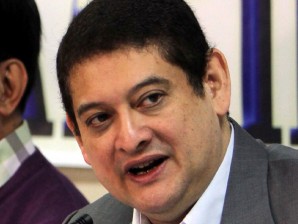MANILA, Philippines—A new approach in crafting the government budget, known as the “bottom-up budget,” aims to improve the implementation of projects and programs and uplift the poorest regions in the country.
“The government has introduced the bottom-up budgeting system for the 2013 national budget which intends to have closer citizen engagement through civil society organizations (CSOs) and the local communities,” Senator Teofisto Guingona III, who convened the “Bottom-Up Budgeting Forum” Friday, said in a statement.
The “bottom-up budgeting” was done through consultations with the 609 poorest municipalities of the country, he said. They created their Local Poverty Reduction Action Plans in cooperation with local CSOs which were submitted to the national government for consideration if they will be included in the 2013 nation budget, Guingona said in the statement.
“Some 593 of these municipalities have submitted plans collectively worth P8.37 billion covering community-determined projects– such as agriculture and fisheries support, potable water supply, basic education and public healthcare,” he said.
“The poor should have a voice in the crafting of the national budget because whatever the government implements will directly affect their lives,” Guingona said.
Guingona praised President Benigno Aquino III for initiating new budget approach that encourages the active participation of citizens to create a more transparent and accountable government.
“This process assures that public funds will be spent to intended programs benefiting target recipients to improve the social and economic well-being of citizens,” Guingona added.
He said that this new approach fights corruption in government and would create a more open and transparent government.
“Our nemeses are not just apathy and indifference, but an age-old culture of corruption. But the bottom-up budget is determined to fulfil its mission of being open and transparent to the public,” Guingona said.
The House of Representatives on Thursday approved on second reading the General Appropriations Act of 2013, which amounts to P2.006 trillion.
